Published by Louisiana State University Press
Copyright 2014 by Louisiana State University Press
All rights reserved
Manufactured in the United States of America
First printing
Designer: Michelle A. Neustrom
Typeface: Ingeborg
Printer and binder: Maple Press
Library of Congress Cataloging-in-Publication Data
Jimerson, Randall C.
Shattered glass in Birmingham : my familys fight for civil rights, 1961 1964 / Randall C. Jimerson.
pages cm
Includes bibliographical references and index.
ISBN 978-0-8071-5437-3 (cloth : alk. paper) ISBN 978-0-8071-5438-0(pdf) ISBN 978-0-8071-5439-7 (epub) ISBN 978-0-8071-5440-3(mobi) 1. Jimerson family. 2. Jimerson, Randall C. 3. Civil rights movementsAlabamaBirminghamHistory20th century. 4. African AmericansCivil rightsAlabamaBirminghamHistory20th century. 5. African AmericansAlabamaBirminghamBiography. 6. Birmingham (Ala.) History20th century. 7. Birmingham (Ala.) Biography. I. Title.
F334.B653J56 2013
323.1196'0730761781dc23
2013022657
The paper in this book meets the guidelines for permanence and durability of the Committee on Production Guidelines for Book Longevity of the Council on Library Resources.

ACKNOWLEDGMENTS
Although told primarily from my own perspective, this is truly a family memoir. It incorporates stories and memories from my mother and father, my sisters Ann and Sue, and brothers Paul and Mark. I thank each of them for allowing me to retell their stories through my own point of view. Ann truly deserves credit as coauthor of this volume. We have both been thinking about our time in Birmingham for fifty years, building and shaping memories of life-changing experiences. More than a decade ago Ann tried valiantly to get her siblings organized and motivated to write our recollections of Alabama. Each of us wrote one or two such vignettes, but we never matched Anns optimistic plans.
Finally, in 2011 I decided to take on the project myself, with contributions from Ann, Paul, Sue, and Mark. I had already done research on the civil rights activities of my father and his colleagues and associates at the Atlanta University Center archives, the Birmingham Public Library archives (BPL), and the Birmingham Civil Rights Institute (BCRI) in 2002. In December 2011 I made another research trip to Alabama. Ann joined me to conduct research and tape an oral history interview at BCRI about our childhood experiences in Birmingham. As I began writing this memoir, Ann provided encouragement, moral support, and editing suggestions for my rough drafts of every chapter and for later revised drafts. She also composed the Questions for Discussion available on the presss website. Mark also generously offered valuable editing and stylistic suggestions, as did Paul and Sue. I am especially grateful to the four of them for writing eloquent personal accounts of how the Birmingham years affected each of their lives.
As I conducted research for this memoir, many archivists and librarians provided essential assistance and exemplary service. During my trips to Atlanta in 1988 and 2002, Karen Jefferson and Cathy Lynn Mundale of the Atlanta University Centers Archives and Special Collections helped me locate my fathers papers in the Southern Regional Council records, and made nearly four hundred pages of photocopies for me. At the Birmingham Public Library Department of Archives and Manuscripts during my research visits in 2002 and 2011, Jim Baggett lived up to his outstanding reputation among civil rights researchers, and Don Veasey provided generous and quick assistance in securing copies of photographs in 2013. In 2011 Ed Bridges and Norwood Kerr of the Alabama Department of Archives and History in Montgomery offered expert advice and permitted Ann and me to examine unprocessed papers of Charles Morgan Jr., which proved very useful. Elizabeth Wells of Samford University Special Collections provided valuable information about Howard College and Homewood.
The staff of the Birmingham Civil Rights Institute has been particularly helpful in providing information and research assistance. Archivist Laura Anderson, in particular, has become a collaborator on my project. I also thank BCRI president Dr. Lawrence J. Pijeaux Jr., founding president Odessa Woolfolk, and archivist Wayne Coleman. Jan Ballard of the American Baptist Historical Society and Lisa McNair, daughter of Chris McNair, provided permission to include two photographs for the book, and I deeply appreciate their assistance.
One of the special joys of this project has been to reconnect with family friends from our Alabama years. Eileen Walbert and David Walbert have earned special places in my heart for their continued commitment to the movement and its legacy, as well as their warm hospitality. It was a special privilege to introduce Reverend Robert E. Hughes when he received a humanitarian award from the Whatcom Peace and Justice Center (Bellingham, Washington) in 2010, and to interview Bob and his wife Dottie at their home in Issaquah, Washington, in January 2012. Sadly, Bob passed away before I could complete this book or help him write his autobiography. Bobs nephew, Rev. Paul Hughes of Birmingham, provided valuable insights into his uncles career and, during our visit with him in 2011, he even offered a prayer for the research project Ann and I were conducting. Ann and I have enjoyed visiting with Bette Lee Hanson in Washington, D.C., and Ann is currently conducting a series of oral history interviews with her. I have also had the honor of meeting two former civil rights colleagues of my father, Reverend Fred Shuttlesworth in 2002 and Ambassador Andrew Young in 2005.
As I began writing this memoir in 2012, Bob Zellner graciously agreed to be interviewed by telephone from his new home in North Carolina. Connie Curry, whom I first met at a history conference in 1997, provided valuable suggestions on my first drafts of several chapters and told me that my father had a reputation among civil rights workers in the 1960s as being very effective. I want to thank Andrew Manis for sending a copy of his oral history interview with my father to Ann and me several years ago; it has been very helpful in filling in some details and gaps in my fathers story. Diane McWhorter has provided encouragement and advice at several key points along the way. I also want to thank Brenda Banks, Kerrie Cotten Williams, Mary Jensen, Gary McKinney, and Casey Kelly for assistance and advice. My brother-in-law, Rev. Dr. Peter Moon, who has been active in setting up a civil rights museum in Farmville, Virginia, offered valuable suggestions and encouragement as I began revising the manuscript.
The Research and Sponsored Programs office at Western Washington University provided travel funding for my research trip to Birmingham and Montgomery in 2011. Almost twenty years ago my supervisor at the University of Connecticut, university librarian Dr. Norman D. Stevens, assisted me in obtaining funding to transcribe interviews I had conducted with my father in 1992. I also want to thank my colleagues in the Department of History at Western Washington University for support and collegiality, especially Department Chair Kevin Leonard, George Mariz, and staff members Jennie Huber and Willie Smith. My students, past and present, have heard some of these stories, and have helped me in learning how to talk about my own experiences.

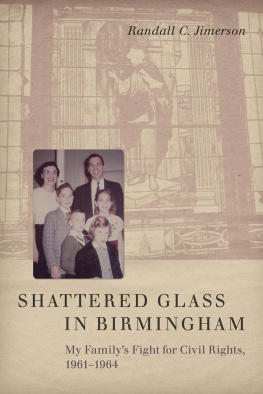
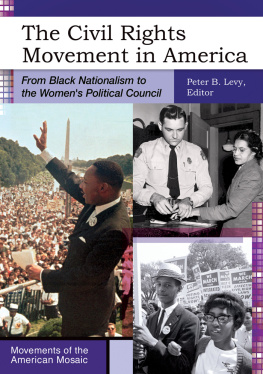

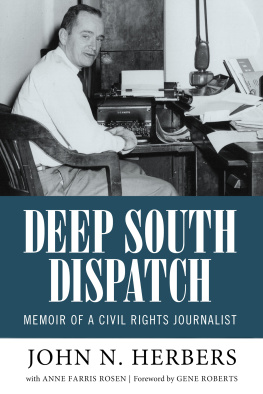
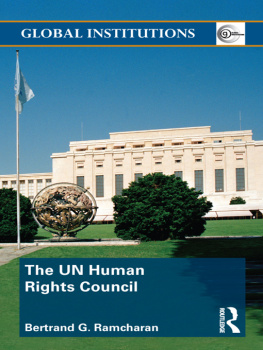
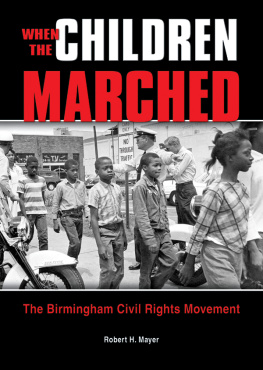
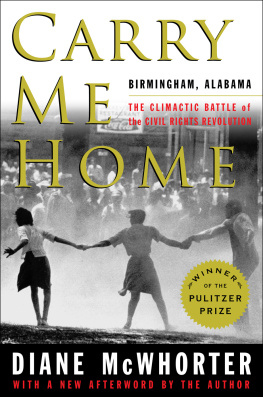
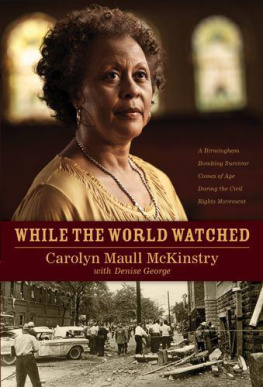
 BATON ROUGE
BATON ROUGE